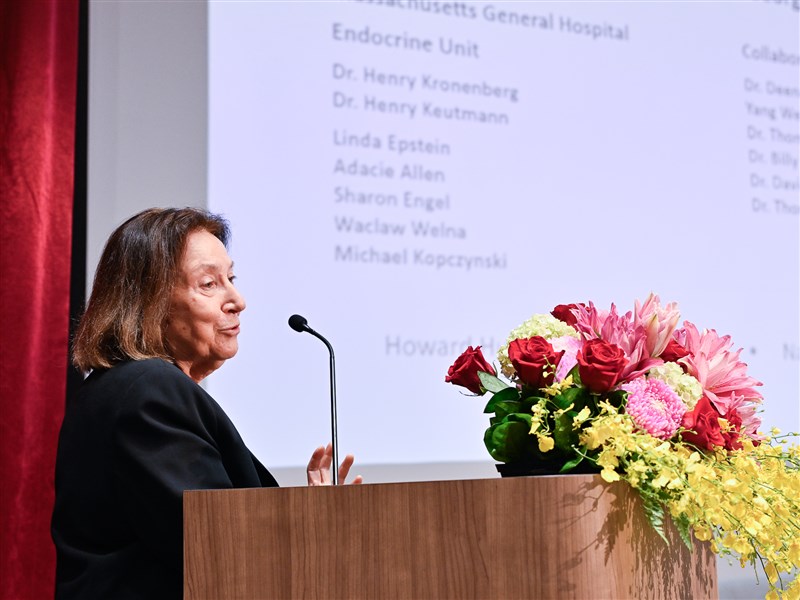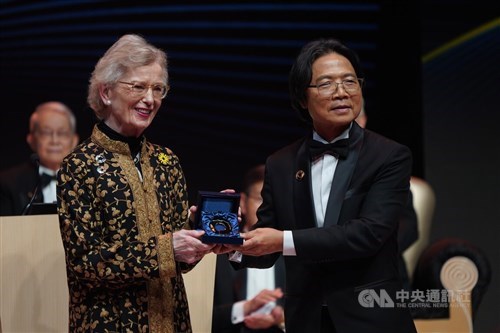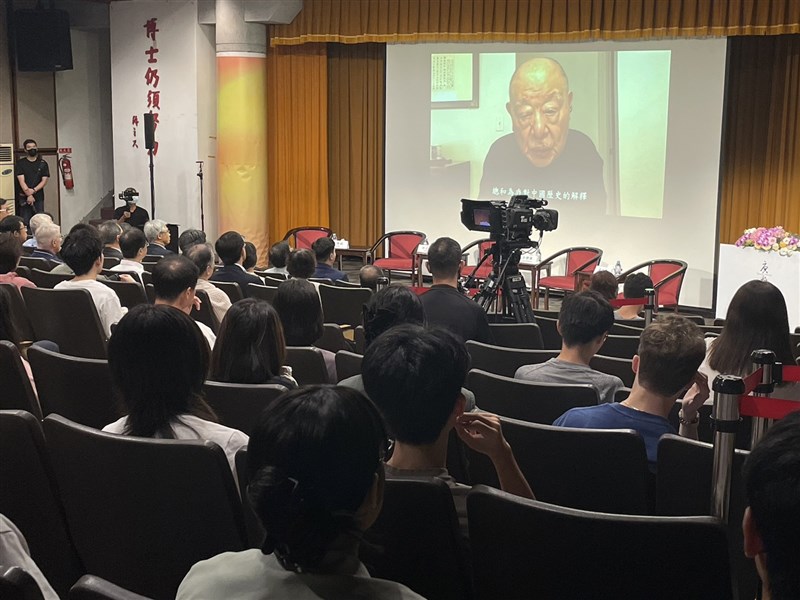TANG PRIZE / Mary Robinson: A trailblazer in climate justice, human rights advocacy
06/21/2024 05:40 PM
Mary Robinson, the former president of Ireland, has been awarded the 2024 Tang Prize in Rule of Law, honoring her six decades as a legal scholar and practitioner as well as an advocate for human rights and climate justice.
(Full text of the story is now in CNA English news archive. To view the full story, you will need to be a subscribed member of the CNA archive. To subscribe, please read here.)
More in TANG PRIZE
-
![Drugs treating diabetes, obesity can do more: Tang Prize laureates]() Drugs treating diabetes, obesity can do more: Tang Prize laureatesSvetlana Mojsov and Jens Juul Holst, two of the laureates of the 2024 Tang Prize in Biopharmaceutical Science, said at a forum in Taichung on Tuesday that the GLP-1-based drugs their research spawned could go beyond managing diabetes and obesity.10/01/2024 08:52 PM
Drugs treating diabetes, obesity can do more: Tang Prize laureatesSvetlana Mojsov and Jens Juul Holst, two of the laureates of the 2024 Tang Prize in Biopharmaceutical Science, said at a forum in Taichung on Tuesday that the GLP-1-based drugs their research spawned could go beyond managing diabetes and obesity.10/01/2024 08:52 PM -
![Tang Prize winner lauds Taiwan implementation of human rights covenants]() Tang Prize winner lauds Taiwan implementation of human rights covenantsFormer Irish President Mary Robinson on Monday praised Taiwan's efforts to incorporate international covenants on human rights into its domestic law despite not being a signatory.09/30/2024 08:58 PM
Tang Prize winner lauds Taiwan implementation of human rights covenantsFormer Irish President Mary Robinson on Monday praised Taiwan's efforts to incorporate international covenants on human rights into its domestic law despite not being a signatory.09/30/2024 08:58 PM -
![Historian shares research into ancient Chinese myth at Tang Prize forum]() Historian shares research into ancient Chinese myth at Tang Prize forumRenowned Taiwanese-American historian Hsu Cho-yun (許倬雲) on Monday said his work regarding the ancient Chinese myth Da Yu (大禹) was a successful example of integrating social science methodologies into historical research that helped him win the 2024 Tang Prize in Sinology.09/30/2024 01:52 PM
Historian shares research into ancient Chinese myth at Tang Prize forumRenowned Taiwanese-American historian Hsu Cho-yun (許倬雲) on Monday said his work regarding the ancient Chinese myth Da Yu (大禹) was a successful example of integrating social science methodologies into historical research that helped him win the 2024 Tang Prize in Sinology.09/30/2024 01:52 PM
Latest
-
Society
3 freeway accidents cleared as Lunar New Year traffic builds
02/15/2026 08:12 PM -
Politics
Lai vows stronger defense, economy, welfare in pre-Lunar New Year remarks
02/15/2026 08:05 PM -
Society
Molly the hamster finds new home after street life ordeal in New Taipei
02/15/2026 06:35 PM -
Business
CPC to freeze fuel prices over Lunar New Year holiday
02/15/2026 05:25 PM -
Politics
Taiwan vice premier returns home after trade agreement signed with U.S.
02/15/2026 04:45 PM


